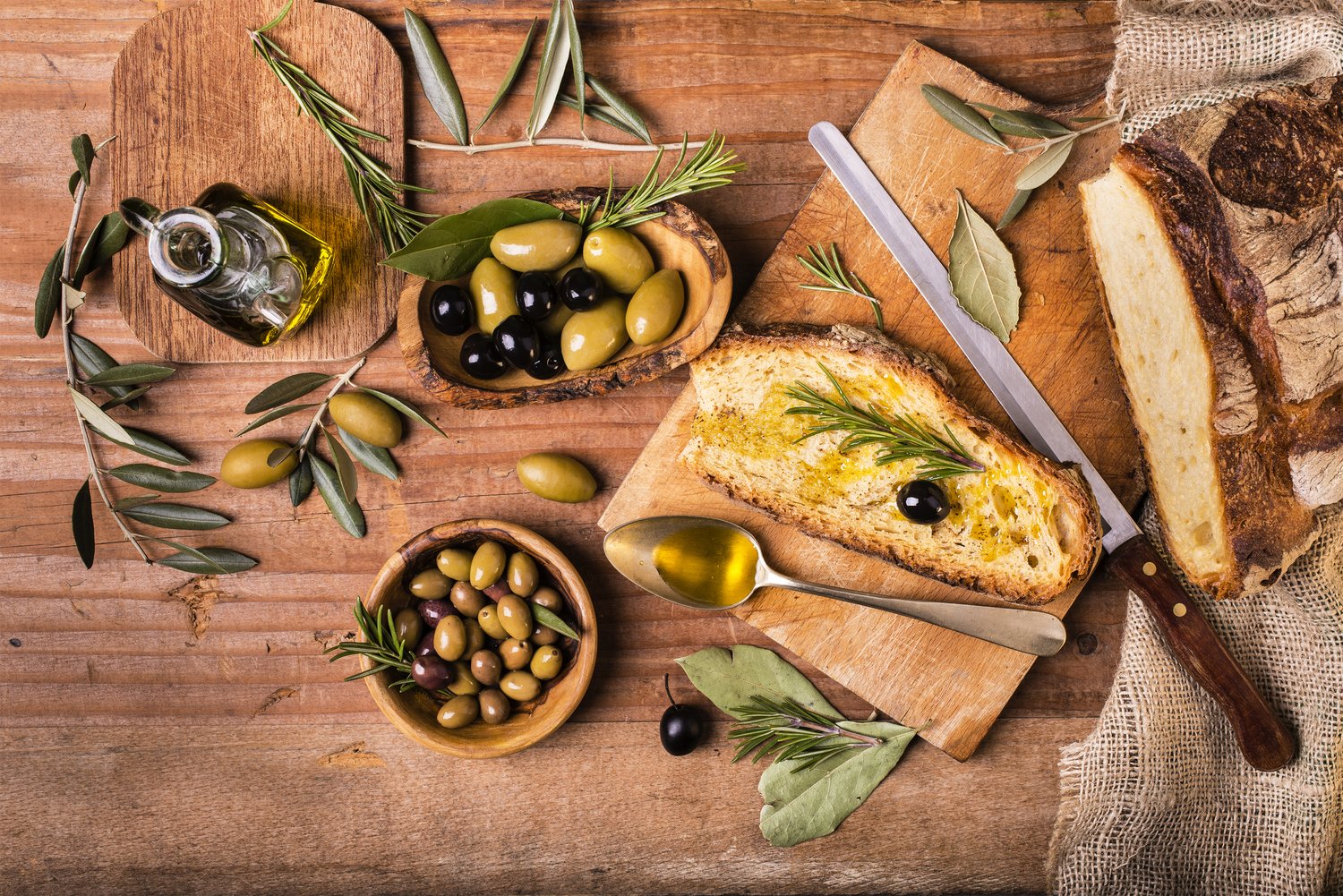This could potentially be the most important thing for you to know about healthy eating.
The fat you eat matters.
Like, it really, really matters.
Some fats are pro-inflammatory and cause a lot of oxidative stress (excess free radicals). This can cause all kinds of health problems like heart disease and cancer.
Other fats clog up our cell membranes and cause less flow of oxygen into our cells. This negatively impacts the health of our cells in a very profound way.
Other fats are not utilized well as energy. They can be good in small amounts but are not good sources of fuel.

When your cells are not getting enough of the right kind of fuel, they don’t function properly and this can cause dysfunctional and unhealthy cells, again leading to all kinds of chronic diseases including insulin resistance and eventually type 2 diabetes, Alzheimer’s, Parkinson’s, cardiovascular disease, and cancer.(1)
More than any other type of fuel (protein, sugar, and alcohol), it is super important to get the right KIND of fatty acids.
We can think of fat as serving three major roles in the body.
- One is as a source of fuel. Fat gets transformed into an important molecule that leads to the creation of ATP (aka energy).
- Another is structural. Cell membranes and your brain are made up mostly of fat.
- And the third is that fatty acids act as biological mediators. This includes directing cell membrane activity, interacting with hormones, regulating gene expression, and reducing or increasing inflammation. (2)
In general, the easiest way for you to know if a fat will be good for you is to see how processed it is.
Natural fats that come in whole foods are the best kind!
Oils can be tricky but I recommend using the kinds of oils people would have had in their kitchen 100 years ago (like extra virgin olive oil, ghee, and coconut oil).
When you are considering which fats and oils are good for structure and for healthy biological mediation, my recommendation is to get a broad spectrum of fats. Of course, whole food and natural sources are the best.
When it comes to fat as a source of fuel we should favor monounsaturated fat first, saturated fat second, and polyunsaturated fat last.
Good sources of monounsaturated fats (MUFAs) include olives, almonds, avocados, macadamia nuts, and their oils. They also include chicken skin and fat, bacon fat, pecans, and hazelnuts.
MUFAs are an amazing source of energy for your cells. They have been shown to be safe and to produce more ATP (energy) than other fatty acids.
If you eat mostly MUFAs you will have an easier time releasing body fat because your cells love to burn MUFAs.
If you are trying to lose weight, MUFAs should be your best friend (along with sufficient protein and lots of fiber).
There is plenty of research supporting this and it helps that things like pecans, olives, avocados, and extra virgin olive oil are tasty and ubiquitous. So enjoy!

Good sources of saturated fats (SFAs) include grass-fed dairy and red meat, pasture-raised eggs and pork, and coconut fat.
Saturated fatty acids have been heavily demonized in our medical establishments and in the media.
This is unfortunate because SFAs are also a great source of energy.
Saturated fat is also very important for the structural integrity of your cell membranes.
So much attention is paid to SFAs causing heart disease but many studies lump together factory-farmed meat, trans fats, or refined oils with healthy foods like butter, eggs, and grass-fed beef.
Saturated fats from whole food sources are completely different.
As always my recommendation is to eat whole foods as much as possible.
Small amounts of butter or cheese from grass-fed cows and grass-fed red meat can be easily included in any sustainable weight loss/healthy lifestyle. Eggs and whole-food cuts of pork from pasture-raised animals can also be incorporated into any healthy diet.
The important thing is that you listen to your body.
You don’t have to go crazy with these foods but most people who have a history of dieting already know that.
If you enjoy those foods I invited you to ditch the vegetable oils and fake butter and start to integrate red meat and dairy from grass-fed sources and lightly processed pasture-raised pork and eggs into your diet.
See you how you feel.
And if you are trying to lose weight, keep an eye on the scale. These sources of fatty acids can actually help with weight loss because your cells like to burn these kinds of fats. And they are satiating.
But if you eat too much they could also cause weight gain. So watch your body to see what amount works for you in your weight loss journey.
I am not a fan of eating those foods with abandon and forgetting all about veggies. Rather, I am suggesting that you use these foods judiciously, especially if you are going to replace industrial oils and factory-farmed foods with these kinds of whole foods.

Good sources of polyunsaturated fats (PUFAs) include unrefined, non-heat-treated flaxseed oil, sunflower seed oil, walnut oil, and sesame oil.
Pretty much all seeds contain mostly PUFAs. Flax and chia seeds are particularly high in omega-3 fatty acids. Walnuts (and walnut oil) and dark leafy greens are also good sources of omega-3 fatty acids.
Most other seeds contain predominantly omega-6 fatty acids. As long as they are not heated or rancid, they are great sources of this important type of fatty acid.
For most of American history, people consumed things like lard, beef tallow, and butter to cook their food. From the 1950s on there has been a campaign to smear these wholesome foods.
The recommendation has been and continues to be to remove saturated fat and eat more vegetable oils (which are all PUFAs).
They seem to have forgotten to mention that vegetable oils are highly processed and often actually sourced from industrial waste.
The truth is that vegetable oils are cheap!
That is why we see them in deep fryers and processed foods everywhere!
This is industrial food at its worst!
As a result, millions upon millions of Americans have given up wholesome foods like butter in favor of vegetable shortening and lard in favor of rancid vegetable oils.
As a matter of fact, the majority of fatty acids (80%!) consumed by Americans are vegetable oils.
Some researchers contend that it is the high consumption of vegetable oils and not all the sugar that is the real culprit of the current epidemic of obesity in our country.
They also have forgotten to mention that PUFAs are highly sensitive to heat, air, time, and light.
They go rancid if you just look at them wrong.
And most of the vegetable oils people consume have been heated at high temperatures, causing them to be full of free radicals and a major cause of oxidative stress and inflammation in our bodies.
Our cells are bombarded with rancid, damaged oils that are poor sources of fuel.
This cannot be good!
We do well with tiny amounts of PUFAs. And whole-food sources of omega-3 and omega-6 fatty acids in small amounts will do wonders to reduce inflammation, manage insulin, and promote long-term cardiovascular health.
But when we consume 80% of our fatty acids from vegetable oils our cells cannot utilize them for energy well.
This results in fat gain!!
If your cells do not burn the fat properly, guess what happens?
The fatty acids are sent over to our fat stores. This causes an increase in body fat.
If you are looking for more in-depth information and tons and tons of research around why PUFAs should be consumed only in small amounts, check out this site.
So, rather than consuming highly processed oils, we should be eating natural oils.
This is not hard to remember.
Fat in whole foods like avocados, nuts, coconut, butter, grass-fed beef, pasture-raised pork, chicken, and eggs, and extra virgin olive will be burnt more readily than processed vegetable oils, which will help you with weight loss.
So, stay away from canola oil, artificially produced “high-oleic” oils (sunflower and safflower), deep-fried food, and trans-fats. These are not utilized well in your cells, can cause oxidative stress, and will cause weight gain and PREVENT weight loss!
Favor whole foods in general but in particular with your fats and oils and you will see a gradual but steady improvement in your health and more ease with weight loss.
In our WYN Program, you get the guidance and support you need to start developing the list of healthy habits that will keep your metabolism as balanced as it can be and to age with vitality and energy.
We provide you with the accountability you need to make progress in the 5 areas of health mentioned above:
- Nutrition
- Physical Activity
- Sleep
- Stress Management
- Mindset
If you would like to learn more about our program I invite you to book a call with me. Just click below.
References
1. Calder PC. Functional Roles of Fatty Acids and Their Effects on Human Health. JPEN J Parenter Enteral Nutr. 2015 Sep;39(1 Suppl):18S-32S. doi: 10.1177/0148607115595980. Epub 2015 Jul 15. PMID: 26177664.
